Last Updated on April 14, 2025 by Packoi Team
Printing plays a crucial role in modern communication, but it significantly impacts the environment. The use of harmful inks has raised concerns about sustainability, prompting a shift toward eco-friendly alternatives made from soy and vegetable-based sources.
This article explores the benefits of soy and vegetable-based inks in promoting sustainability, while also addressing the drawbacks of traditional inks and the steps needed to make printing more eco-friendly.
Soy-Based vs. Vegetable-Based Inks
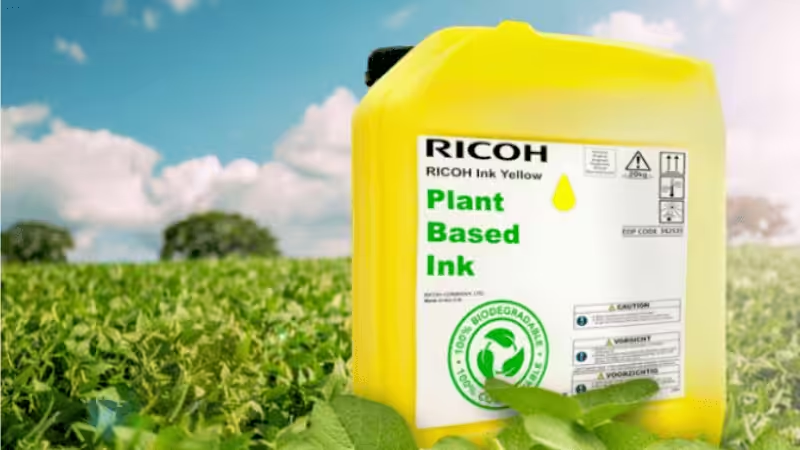
Both soy-based and vegetable-based inks offer eco-friendly benefits, but they differ in source and sustainability. Let’s explore what makes each unique and which one is more sustainable.
What Are Soy Inks?
Soy inks are made from soybean oil, which is a renewable resource. Soybeans are abundant in the world, making soy inks a sustainable alternative to traditional inks. Soy-based inks are also used for packaging because they are biodegradable; they break down quickly and easily without harming the environment.
What Are Vegetable Inks?
Vegetable-based inks, on the other hand, are made from a variety of vegetable oils, including linseed, canola, and sunflower oil. Like soy ink, vegetable ink comes from a renewable resource and is biodegradable, making it eco-friendly.
Which One Is more Sustainable?
When it comes to sustainability, both soy and vegetable inks are excellent choices. However, soy ink is more popular due to its availability and the fact that it is easier to manufacture.
Soybeans are also more widely grown, making soy ink have a smaller carbon footprint when it comes to transportation and distribution. That being said, both soy and vegetable inks are sustainable options that can help reduce the environmental impact of the printing industry.
Differences in Sustainability of Soy and Vegetable-Based Inks
In the sustainable printing sector, soy-based and vegetable-based inks are gaining prominence as environmentally friendly alternatives to traditional inks. While both are eco-conscious choices, they exhibit distinct differences in terms of source, environmental impact, and application.
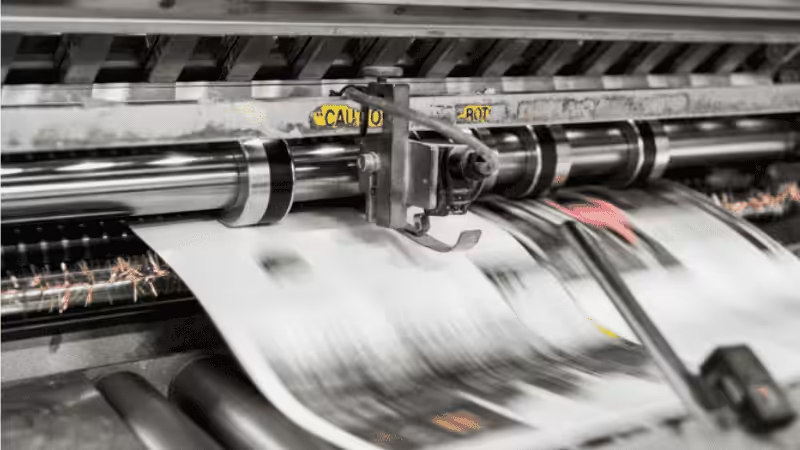
1. Source Material
- Soy Ink: Derived primarily from soybeans, these inks utilize soybean oil. Soybeans are a renewable resource, and the process of converting soybeans into ink is well established, making soy ink a reliable, eco-friendly option.
- Vegetable Inks: Made from various vegetable oils, such as linseed, safflower, and canola, these inks offer more diversity. The type of vegetable oil used can influence the ink’s properties and its overall sustainability.
2. Environmental Impact
- Soy Ink: These inks are known for their low environmental impact. They are more biodegradable and facilitate easier de-inking during paper recycling, which contributes to reduced waste.
- Vegetable Inks: The impact varies depending on the specific vegetable oil used, but generally, they also present a reduced environmental footprint and assist in efficient recycling processes.
3. Performance Characteristics
- Soy Ink: Preferred for high-quality color printing, soy inks are celebrated for their ability to produce vibrant colors. They are particularly popular in magazine and packaging printing.
- Vegetable Inks: The performance can vary significantly based on the type of vegetable oil used. Some oils might offer faster drying times or enhanced glossiness, making them suitable for specific printing needs.
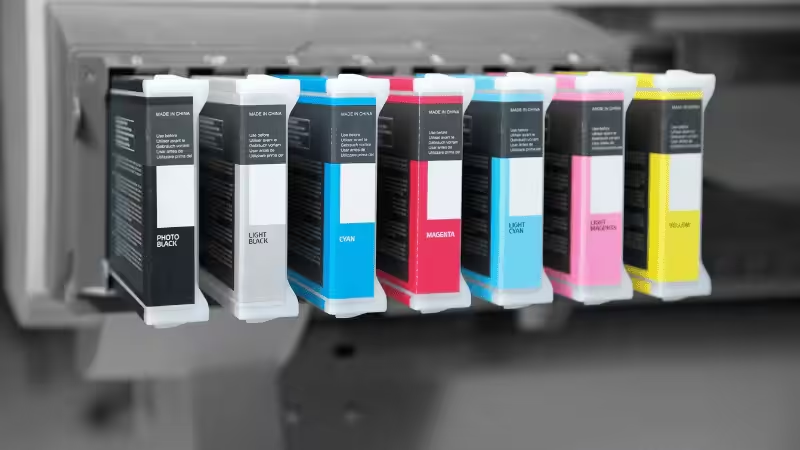
4. Availability and Cost
- Soy Ink: These inks have gained wide popularity and are readily available on the market. Their cost is generally competitive, aligning closely with conventional inks.
- Vegetable Inks: Their availability and cost can fluctuate, largely influenced by the type of vegetable oil used and its market availability.
5. Health and Safety
- Soy Ink: These inks are often considered safer for both workers and consumers due to their lower levels of volatile organic compounds (VOCs).
- Vegetable-Based Inks: Similar to soy ink, they typically have lower volatile organic compounds, making them a safer alternative in the printing industry.
In conclusion, both soy-based and vegetable-based inks offer unique, sustainable benefits. The choice between them depends on specific printing requirements, environmental priorities, and availability. As the industry evolves, these eco-friendly inks are pivotal in reducing the environmental footprint of printing.
The Manufacturing Process of Soy vs. Vegetable-Based Ink
The manufacturing process for vegetable and soy inks is similar. They are both made from renewable oil sources. However, there are some differences in the specific oils used and the manufacturing process.

Soy ink is made from soybean oil, extracted from soybeans after they are crushed and mixed with a solvent. The soy oil is refined and mixed with pigments and other additives to create ink. This ink type is produced using less energy and emits minimal greenhouse gases during manufacturing compared to petroleum-based ink types.
Vegetable oil-based ink is made from diverse oils from vegetables, such as linseed, canola, and sunflower oil. The specific oil used depends on the desired characteristics of the ink, such as drying time or color intensity.
Notably, the oil is extracted from the plant through pressing and refining and mixed with pigments and other additives to produce ink.
In summary, manufacturing soy and vegetable oil-based inks is more sustainable than petroleum-based inks. The use of renewable resources and a less energy-intensive manufacturing process produces minimal negative environmental impact.
Advantages of Soy-Based Ink
There are several advantages to using soy-based ink in printing. Here are some of the outstanding ones:

1. Better for the Final Product
Soy ink produces sharper and brighter colors than petroleum-based ink. The ink dries faster and has better adhesion, which results in higher-quality printing.
2. Environmentally Friendly
Soy oil ink is made from a renewable resource, soybeans, making it a sustainable option. The manufacturing process emits fewer greenhouse gases and produces less hazardous waste. Additionally, this ink is eco-friendly and biodegradable and has numerous environmental benefits.
3. Cost-Effective
Soy ink is more cost-effective than petroleum ink when doing massive printing projects. This is because printing with soy oil ink uses less ink to achieve the same color intensity as petroleum-based ink. Reducing ink usage leads to cost savings over time.
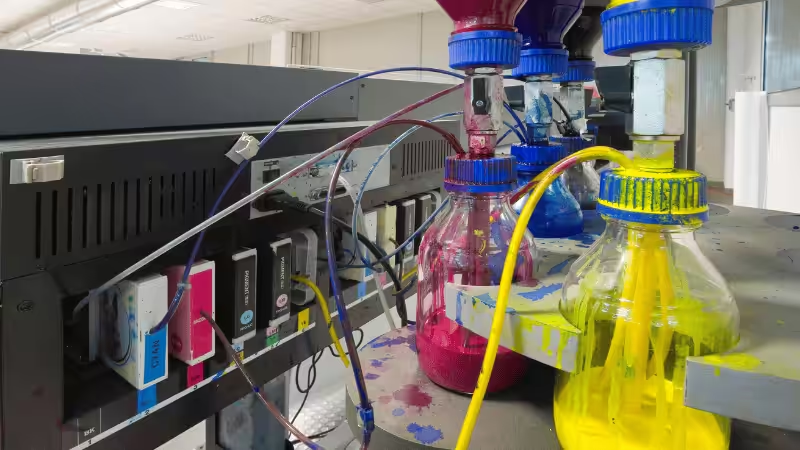
4. Health Benefits
Soy-based ink does not contain harmful chemicals such as volatile organic compounds (VOCs) that pollute the air, negatively impacting health. Therefore, soy oil ink is a safer option for printing industry workers and consumers coming into contact with printed materials.
5. Reduce Waste
Soy-based ink can be easier to clean up and recycle than petroleum ink. This helps reduce waste in the production process. Additionally, soy ink can be packaged in recyclable or biodegradable materials, further reducing its negative environmental effects.
In summary, soy-based ink offers a range of benefits, including higher-quality printing outcomes, environmental health and sustainability, cost-effectiveness, and improved health and safety for workers and consumers.
Advantages of Vegetable-Based Inks
There are several advantages to this option. Here are some of the most outstanding ones.
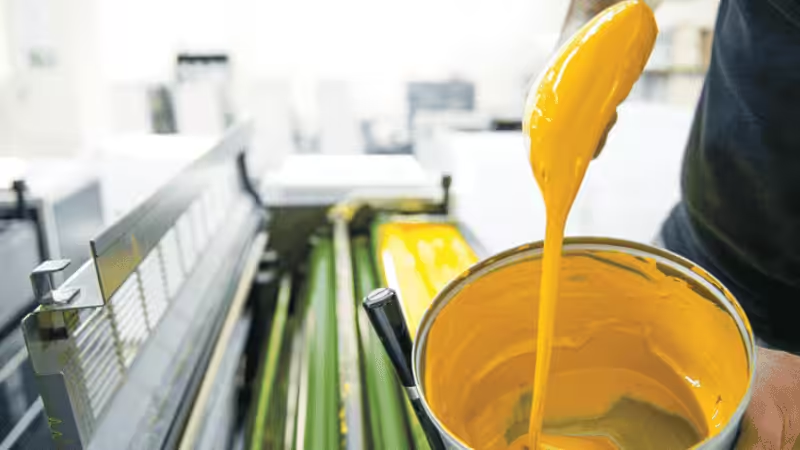
1. Low VOC Percentage
Vegetable-based ink has a lower volatile organic compound (VOC) content than petroleum-based ink, reducing air pollution and improving indoor air quality. VOCs are harmful chemicals combined with ink pigments that can contribute to health problems such as headaches, respiratory issues, and eye irritation.
2. Renewable Resources
Like soy ink, it is also made from a variety of vegetable oils, such as linseed, canola, and sunflower oil. These oils are a renewable resource, making them a sustainable option for the printing industry.
3. Easily Recyclable Process
Vegetable-based ink has an easy recycling process and can be incorporated back into the ink production process, reducing waste and saving resources. The process is known as closed-loop recycling and is a more sustainable option compared to landfilling or incineration.
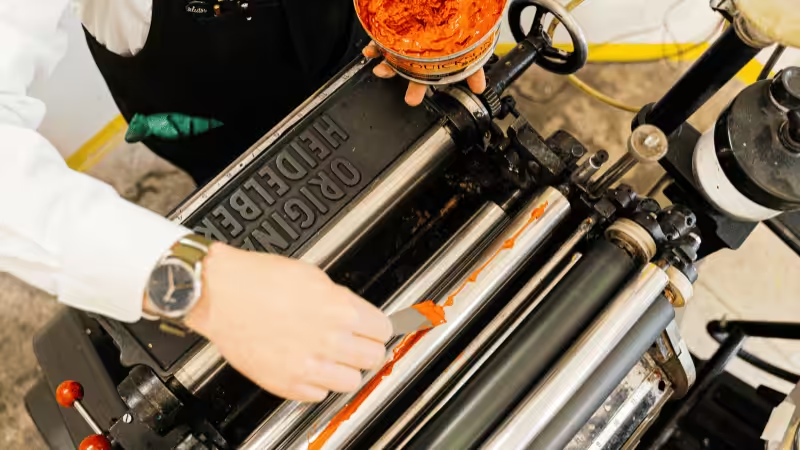
4. Safer for Workers
Vegetable-based ink does not require harmful solvents or chemicals for cleaning printing presses, making it safer for workers in the printing industry. The use of dangerous chemicals contributes to health problems and harms the environment.
5. Higher-Quality Printing
Vegetable-based ink produces high-quality prints with rich and vibrant colors compared to other inks. The ink has good adhesion and dries quickly, reducing the risk of smudging or smearing. The use of vegetable oils in the ink results in a smoother ink flow, reducing the likelihood of clogging in printing equipment.
Similar to soy ink, vegetable-based ink offers a range of benefits, including environmental sustainability, improved indoor air quality, cost-effectiveness, and improved health and safety for workers in the printing industry. Businesses reduce their environmental harm by choosing this option, promoting a more sustainable future.
Conclusion
Sustainable printing practices are vital for both the environment and human health. Soy-based and vegetable-based inks offer eco-friendly alternatives to petroleum-based inks, with soy inks providing vibrant colors and cost savings, while vegetable-based inks feature low VOCs and recyclability.
By choosing these inks, businesses reduce their environmental impact and promote sustainability. Printing companies that adopt these practices not only improve their brand image but also contribute to a greener future.
Get a Reliable Printing Solution from Us
Looking for a reliable printer for your business? Look no further than Packoi. We are committed to offering our customers sustainable printing solutions for their businesses. Get in touch with us now and book a demo or consultation.




